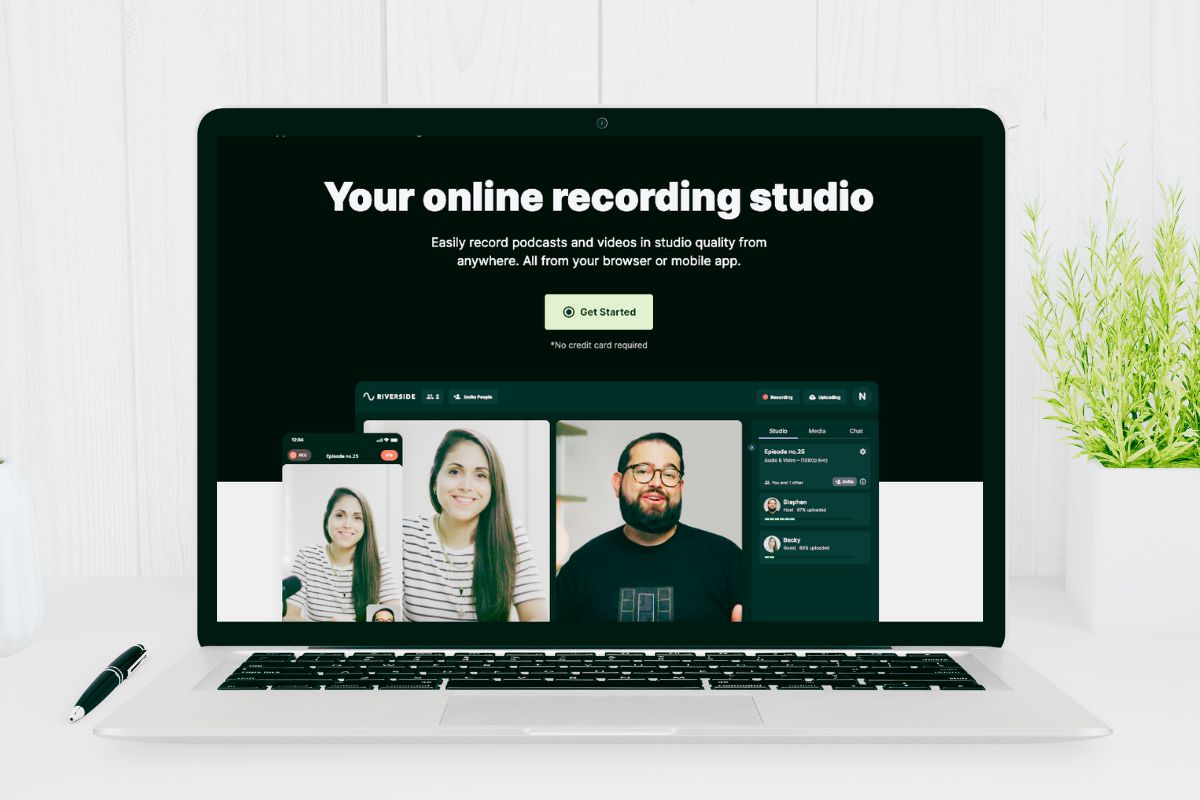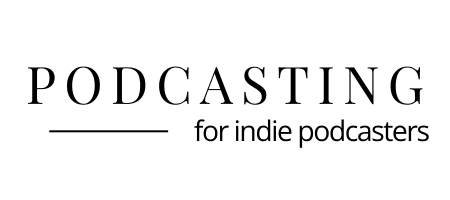
The Power of Connection: How to Build a Loyal Podcast Community
As a podcast host, you know that creating great content is only half the battle. The other half is building a podcast community of listeners who are loyal, engaged, and tune in to your show for each new episode.
But how do you go about building a podcast community? And more importantly, a podcast community that is loyal and engaged with your content?
The answer lies in the power of connection.
When you connect with your listeners on a personal level, you create a bond that goes beyond the content of your show. You become a trusted friend and advisor, and your listeners will be more likely to stick around and recommend your show to others.
In this article, we’ll explore the strategies you can use to connect with your podcast audience and build a loyal community that will support you for years to come.
So, let’s dive in and discover the power of building your podcast community!
Identifying your target audience and their needs
The first step in building a podcast community is to identify your target audience and their needs.
- Who are your listeners?
- What are their interests?
- What problems are they trying to solve?
By understanding your audience, you can create content that resonates with them and speaks to their needs.
One way to get to know your audience is to create listener personas.
These are fictional representations of your ideal listeners, based on data such as age, gender, interests, and goals. Once you have your listener personas, you can tailor your content to their needs and preferences.
It’s also important to stay up-to-date with your audience’s needs and interests. This can be done by regularly engaging with them on social media, asking for feedback, and monitoring your podcast’s analytics.
Other ways that I like to stay up-to-date with my audience’s needs are using resources such as:
- Ubersuggest
- Answer the Public
- Social media platforms where my audience hangs out and are asking questions where I can give answers on the podcast
I then post the episodes that I create answering my audience’s questions, thereby providing value by answering their questions and giving information in areas that they’re asking about.
By staying in tune with your audience, you can continue to provide value and build a loyal community.
Creating engaging content that resonates with your audience
Once you’ve identified your target audience, the next step is to create engaging content that resonates with them.
This means going beyond the surface level and digging deep into the topics that matter most to your listeners.
One way to create engaging content is to use storytelling.
Humans are wired to respond to stories, and using them in your podcast can help you connect with your audience on a deeper level.
You can also use humour, personal anecdotes, and real-life examples to keep your listeners engaged and entertained.
It’s also important to provide value with your content.
This means going beyond the entertainment factor and providing your listeners with actionable insights and advice. By providing value, you can position yourself as an expert in your niche and build trust with your audience.
The importance of consistency in building a podcast community
Consistency is key when it comes to building a loyal podcast community. But I want to get something clear straight away. Consistency DOES NOT mean constantly producing new content. It means that you have a publishing schedule that you stick to.
Your listeners need to know when they can expect new episodes, and they need to be able to rely on you to deliver consistent content.
One way to ensure consistency is to create a content calendar. This will help you plan out your episodes in advance and ensure that you have a regular publishing schedule. You can also use tools like social media scheduling apps to promote your episodes and keep your audience engaged.
Consistency also means maintaining a consistent tone and style in your podcast.
This helps your listeners feel more connected to you and your content. It’s important to be authentic and true to your brand, while also being open to feedback and adjusting your style as needed.
Leveraging social media to connect with your audience
Social media is a powerful tool for building a loyal podcast community. It allows you to connect with your audience on a more personal level and build relationships with them outside of your podcast.
One way to leverage social media is to create a dedicated Facebook group for your podcast community. This allows your listeners to connect with each other and with you, and it provides a space for ongoing discussions and engagement. Whilst not for me, I’ve seen Facebook groups work really well for fellow podcasters.
You can also use social media to promote your episodes and engage with your audience in real time. This can include live tweeting during your episodes or hosting Q&A sessions on Instagram.
Encouraging listener feedback and interaction
Encouraging listener feedback and interaction is crucial for building a loyal podcast community. Your listeners want to feel heard and valued, and giving them a voice can help you foster that connection.
One way to encourage feedback is to include a call to action at the end of each episode.
This can be as simple as asking your listeners to leave a review or share their thoughts on social media. You can also use surveys or polls to get more specific feedback on your content or your audience’s needs.
It’s also important to respond to your listeners’ feedback and engage with them in meaningful conversations. This shows that you value their opinions and are committed to building a two-way relationship with your audience.
Monetising your podcast without sacrificing community building
Monetising your podcast is important, but it shouldn’t come at the expense of community building.
Your listeners will quickly tune out if they feel like they’re being bombarded with ads or if your content becomes too sales-y.
One way to monetise your podcast without sacrificing community building is to be strategic about your sponsorships. Only work with sponsors whose products or services align with your brand and your audience’s needs. You can also create sponsored content that provides value to your listeners while also promoting your sponsor.
It’s also important to be transparent about your monetisation strategies. Be upfront with your audience about your sponsorships and how they support your podcast. Your listeners will appreciate your honesty, and it will help you build trust with your community.
The role of email marketing in building a loyal community
Email marketing is a powerful tool for building a loyal podcast community. It allows you to connect with your listeners on a more personal level and provide them with exclusive content and offers.
One way to use email marketing is to create a newsletter for your podcast community.
This can include behind-the-scenes content, bonus episodes, and exclusive discounts or offers. You can also use email to promote your episodes and keep your audience engaged between episodes.
It’s important to segment your email list based on your listeners’ interests and preferences.
This allows you to provide targeted content that resonates with your audience and helps you build a stronger connection with them.
Collaborating with other podcasters and influencers
Collaborating with other podcasters and influencers can help you expand your reach and build a more diverse community.
By partnering with others in your niche, you can cross-promote each other’s content and reach new audiences.
One way to collaborate with other podcasters is to create guest episodes or co-hosted episodes. This allows you to bring in new perspectives and tap into your guest’s audience. You can also participate in guest interviews on other podcasts to expand your reach and build relationships with other podcasters.
Collaborating with influencers in your niche can also help you reach new audiences and build your credibility. This can include participating in guest posts or interviews on blogs or social media accounts in your niche.
Measuring your success and adjusting your strategy
Measuring your success is important for building a loyal podcast community. It allows you to see what’s working and what’s not, and adjust your strategy accordingly.
One way to measure your success is to track your podcast analytics. This includes metrics like downloads, listens, and engagement rates.
You can also track your social media analytics to see how your audience is responding to your content.
It’s important to set goals and benchmarks for your podcast and adjust your strategy as needed to meet those goals. This may mean pivoting your content or trying new strategies to engage your audience.
4 quick ways for building a podcast community
- Give your community somewhere to hang out. Where can they connect with you and each other on social media?
- Ask your audience what they want. People like to feel valued and listened to. And so by asking what they want to hear from you, your audience will want to keep listening to see your answers to their content suggestions.
- Organise an event. Ok, it might be beyond a lot of podcaster’s means and budget to put on a massive in-person conference, but a Zoom call could be a great way to bring people together with or without a price attached to their attendance.
- Encourage engagement. Ask your audience to share their favourite episode from your podcast, or to shout you out and tag someone that they think would enjoy your latest episode.
Conclusion
Building a loyal podcast community takes time and effort, but the rewards are well worth it.
By connecting with your audience on a personal level, you can build a bond that goes beyond the content of your show. You become a trusted friend and advisor, and your listeners will be more likely to stick around and recommend your show to others.
To build a loyal podcast community, you need to identify your target audience, create engaging content, and be consistent in your publishing schedule and style. You also need to leverage social media, encourage listener feedback and interaction, and be strategic about your monetization strategies.
By collaborating with others in your niche and measuring your success, you can continue to grow your community and provide value to your listeners.
The power of connection is a powerful tool for building a loyal podcast community, so start connecting with your audience today!






